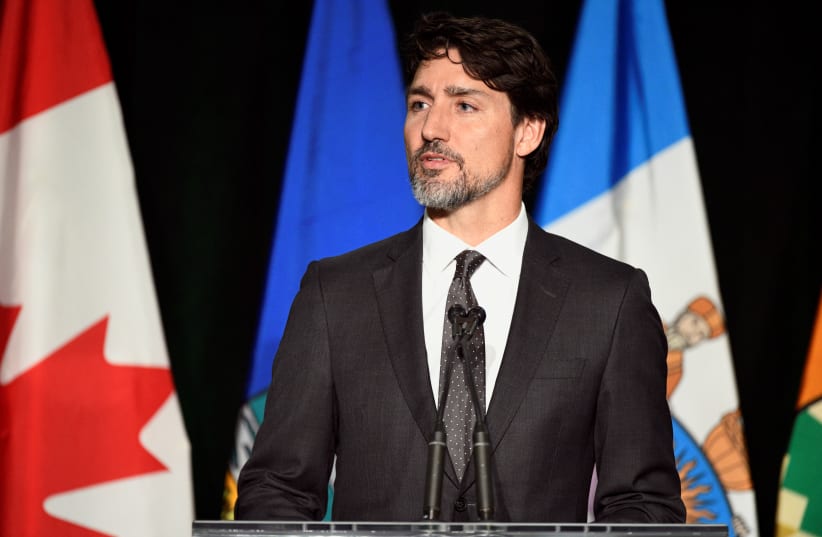Canada, which closed its borders this week to most foreign nationals, agreed with the United States to close their shared border to "non-essential traffic" to curb transmission of the novel coronavirus.
Canada has more than 800 cases of the COVID-19 respiratory illness caused by the coronavirus, and 12 deaths. Some 55,000 people have been tested across the country, Chief Medical Officer Theresa Tam said.
"What continues to concern us is the day-by-day sharp increase in cases and reports from provinces of new cases with no links to travel," Tam told reporters.
Globally, there are over 236,000 infections and more than 9,700 deaths.
Canadian Foreign Minister Francois-Philippe Champagne, 49, went into self-isolation after showing "new, flu-like symptoms" and was awaiting test results.
Canada's indigenous communities, already facing poor healthcare options, are closing their own lands' borders to limit coronavirus exposure.
The Canadian government said this week it would provide C$27 billion ($18.6 billion) in direct support to families and businesses affected by the virus. Quebec said on Thursday it would make C$2.5 billion available to businesses in loans and loan guarantees.
Ottawa was also examining invoking the rarely used 1988 Emergencies Act, which would allow Ottawa to override provinces and restrict the movement of people and goods.
Trudeau said on Thursday he may utilize the military to help with procurement of supplies and urged Canadians to keep practicing social distancing.
"These are difficult and extraordinary times in which Canadians are taking difficult and extraordinary measures," Trudeau told reporters outside his house, where he is in self-isolation after his wife tested positive for the coronavirus.
Many of the more than 3 million Canadians based overseas want to return home, officials said, and some need government help as commercial flights become limited.
Air Canada said on Thursday it was holding talks with Ottawa to operate charter flights from international destinations to return stranded Canadians.
The carrier plans to suspend most international and US transborder flights by March 31 because of travel restrictions.
The prime minister urged Canadians to donate blood, after the agency responsible for the country's blood system said it had seen a spike in canceled appointments.
PROCURING SUPPLIES
Ottawa wants to accelerate procurement of medical supplies, officials said on Thursday, including more masks for healthcare workers.
"We have been able to get the swabs and the other things that the provinces needed," Tam said. "There’s been a request at least, in the shorter term, for 7 million and we got suppliers to cover about 75% of that."
Ottawa has not received any requests for ventilators from provincial health authorities but has been acquiring some for its stockpile, Tam said.
Magna International Inc, a major Canadian auto parts maker, has promised to help with the potential production of ventilators, Ontario Premier Doug Ford said. "We can't rely on importing these ventilators," said Ford. "We have the people, we have the capacity, and we're going to start manufacturing in Ontario."
A Magna spokeswoman said they "aren't currently planning for this."
Some Canadian distilleries and breweries have started producing hand sanitizers to meet higher demand.
The country's oil industry faces deeper spending cuts because of the twin shocks of the global coronavirus spread and a crude oil price war.
